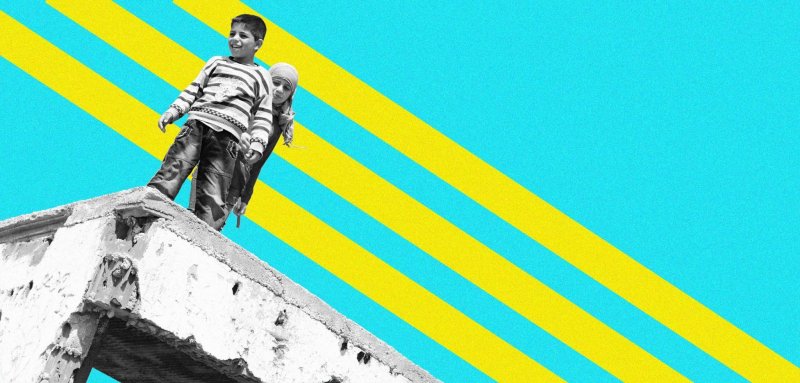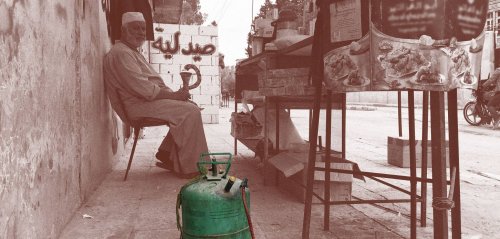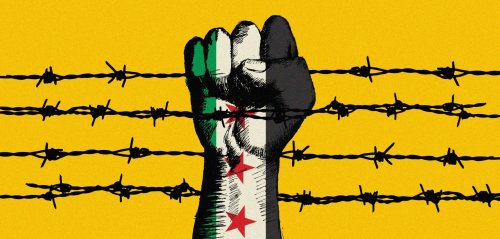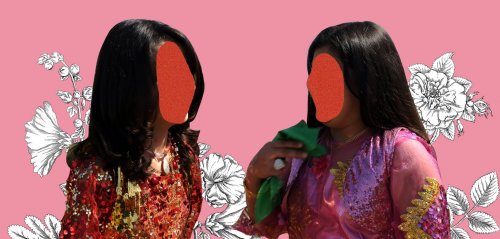"I remember only the shell that fell on our house one day, killing my parents, my grandfather, my uncle and my aunt, and destroying the house. How old was I then? I’m not sure but I am eight now and I was born in 2011.”
That is Sherine, a Syrian girl from the city of Hasakeh, born at the beginning of the conflict in Syria, with a few short sentences summarizing her story, and the story of the war. She has only known harsh experiences of death, displacement and pain in her short life.
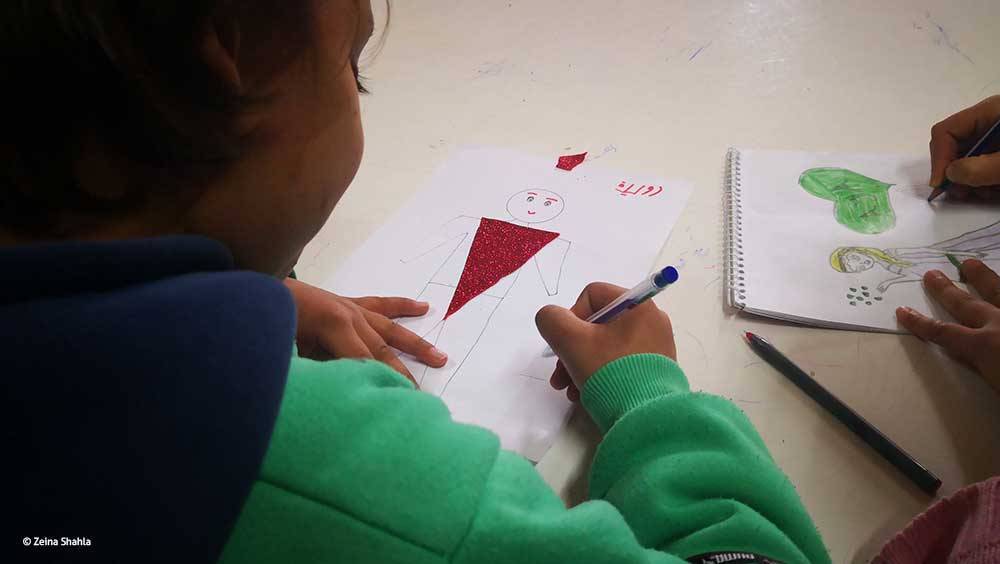
Sherine’s recollections of her life in her city are punctuated by the sounds of battle and the colors of war and destruction. She talks about them in sporadic, disjointed sentences.
”Shells, violent battles, our house is destroyed, my father died, the whole of Hasakeh fled and my mother said that we had better leave too.”
The little girl does not look afraid as she recounts the events of those days. Her eyes widen with astonishment and suddenly stop moving. But she grieves a lot when she begins to tell stories of the exodus from the city with her mother and her brothers.
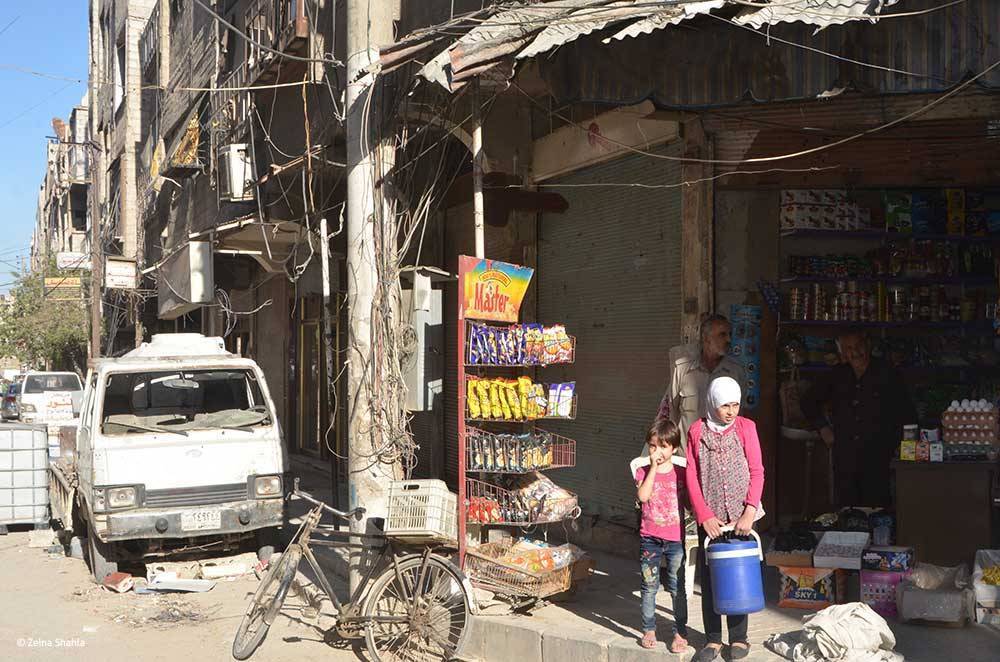
“We left Hasakeh and went to Lebanon so we would not meet with the fate with those that came before us,” she says. “My mother said ‘the stones might fall on us and kill us.’ In Lebanon we were not able to find work so we returned to Syria to live in Damascus.”
Damascus was also not kind to the displaced family of a single mother and six young children. They settled in a downtown park, where they had to endure a harsh life and cold and hot weather without a roof for months. When Sherine’s mother despaired at ever being able to give the children a better life, she decided to send them to a temporary care center. And there Sherine and her brothers were given for the first time a "warm bath, new clothes and enough food."
Sherine dreams of starting her first class at school next year, although that means she is three years behind her peers. She says she wants to become a teacher for children when she grows up, to give them a better future than she has.
"My dreams are far away, but at night I only dream of returning to live with my family, and that my mother is not far from me," she says.
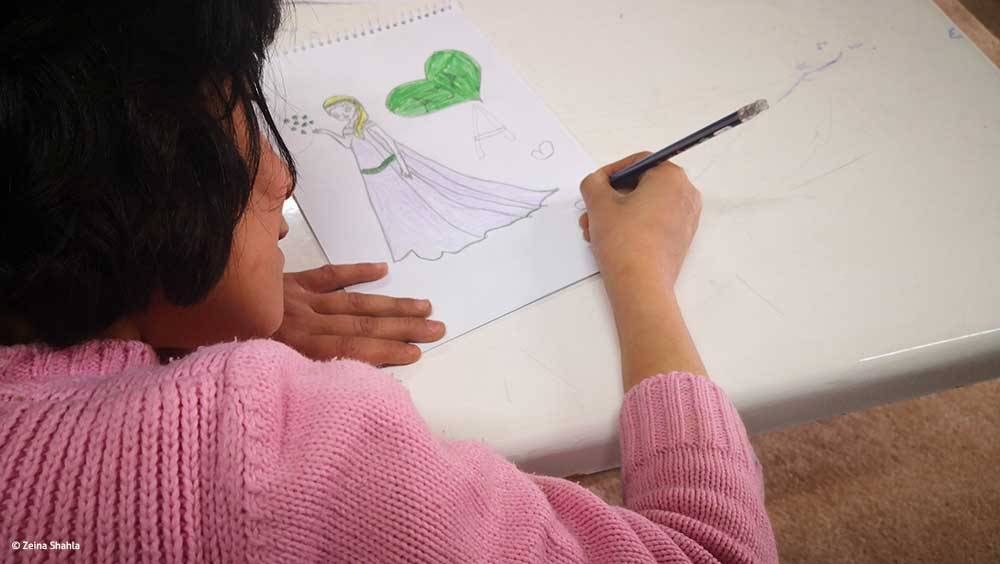
Sherine is not alone. Thousands of children were born in Syria in 2011 and in the following years, and hundreds of thousands of children have retained in their brief memories only the tales of war that the country has been living for eight years.
UNICEF's latest statistics show the presence of 5.5 million Syrian children in need of some form of humanitarian assistance, the displacement of more than 2.5 million children in Syria, and the absence of more than 2 million children from schools.
‘I just want some warmth’
On the outskirts of the town of Jaramana, east of Damascus, eight-year-old Alaa lives with his mother and two younger sisters in a house consisting of a room, kitchen and bathroom. The house may seem ordinary at first sight, and certainly better than the family house that was demolished three years ago in the Damascus suburbs of Eastern Ghouta. But what is lacking in the words of Alaa Omran is simple: windows and doors.
Alaa spends the first half of his day at the school he has been attending for two years. On cold winter days, he feels no desire to return home. "I miss our home in Ghouta and miss my friends there, but what I miss most and all I remember when I close my eyes and think about in the past days is warmth," he says.
The warmth of the old house still stuck in Alaa's imagination is not only due to the presence of doors and windows and walls that protect from the cold as well as the heat, but also a family life that was largely normal before the war destroyed everything he loved - the house, his father, and the town itself.
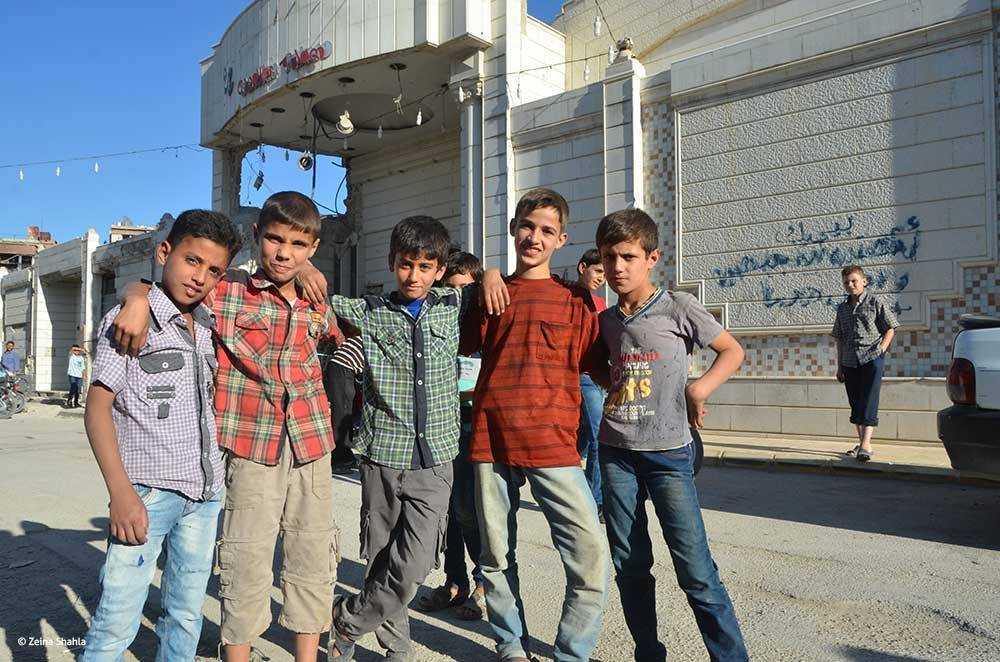
Alaa remembers his father, who disappeared two years ago, vaguely. He does not tire of asking his mother about him, and is constantly asking her to repeat the same stories about him, and their past lives. Often when he hears them, he smiles with sad eyes, then closes them, as if to keep those memories as long as possible.
"I do not want to become a doctor or a teacher,” he says. “Today I only dream of having a warm home, and I hate to think that in the coming winter we may also have to live in this house. I hope the war ends and everything goes back to the way it was.”
‘I am afraid of voices’
Sedra is turning seven this year. She has a frail build and her small eyes twitch whenever she hears a loud voice.
Sedra lived with her family of a father, mother and brother in a town south of Damascus. She remembers a small house from those times, and violent voices that she does not know the source of precisely, but she knew were terrifying.
“There were always strikes, and I was very scared and what scared me the most was the shelling,” she says.
About two years ago, the mother and children fled to a town in the western suburbs of Damascus.
"My father went to buy bread and he never came back, but we are still waiting for him to return"
"My father went to buy bread and he never came back, but we are still waiting for him to return, that’s what my mother told me” says Sedra. “My mother always tells us that he will definitely come back.”
Until now, Sedra has not been able to attend school because of the family's frequent moves from one home to another. The mother has been searching for work without luck, and thus unable to provide the most basic necessities for her children. But the girl believes that next year will be better. She started going to a temporary educational center, hoping to attend school next year.
"I've got friends,” she says. “I know how to write three letters in Arabic and in English, and next year I will go to school and when I grow up I'm going to be a pediatrician, because I do not want children to grow up and have fear like me, I want to help them.”
Raseef22 is a not for profit entity. Our focus is on quality journalism. Every contribution to the NasRaseef membership goes directly towards journalism production. We stand independent, not accepting corporate sponsorships, sponsored content or political funding.
Support our mission to keep Raseef22 available to all readers by clicking here!
Interested in writing with us? Check our pitch process here!
